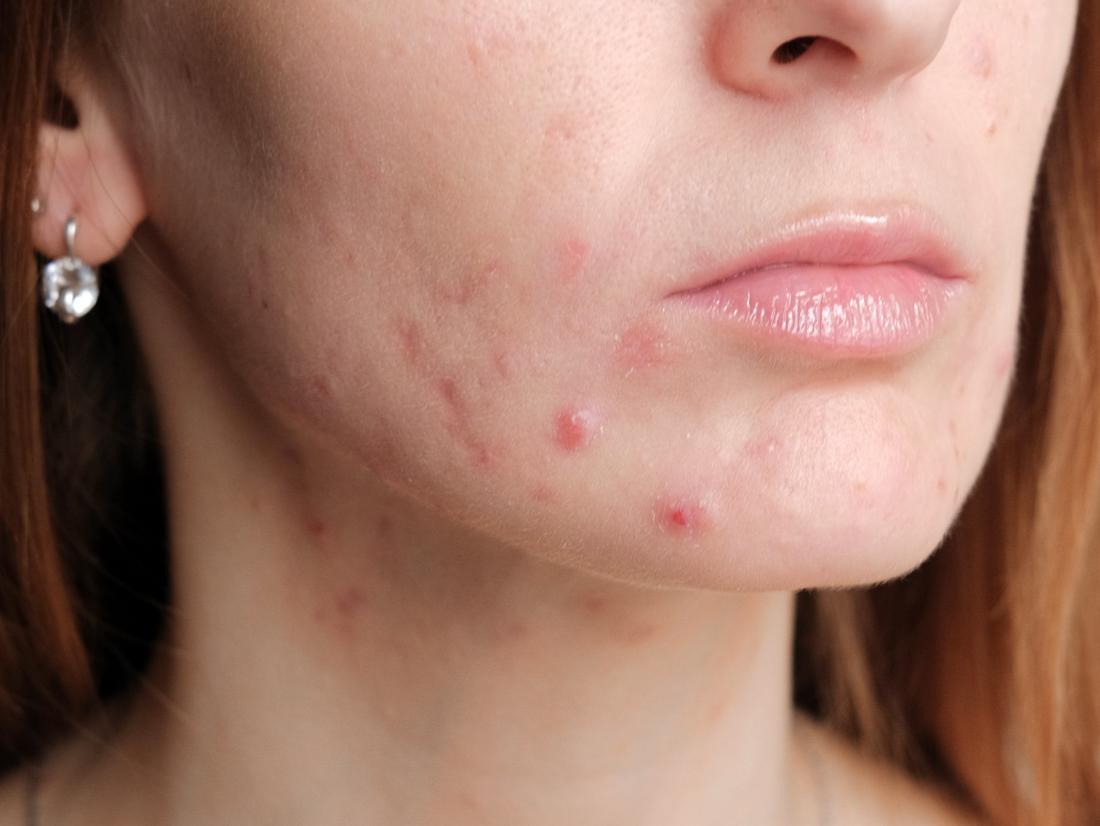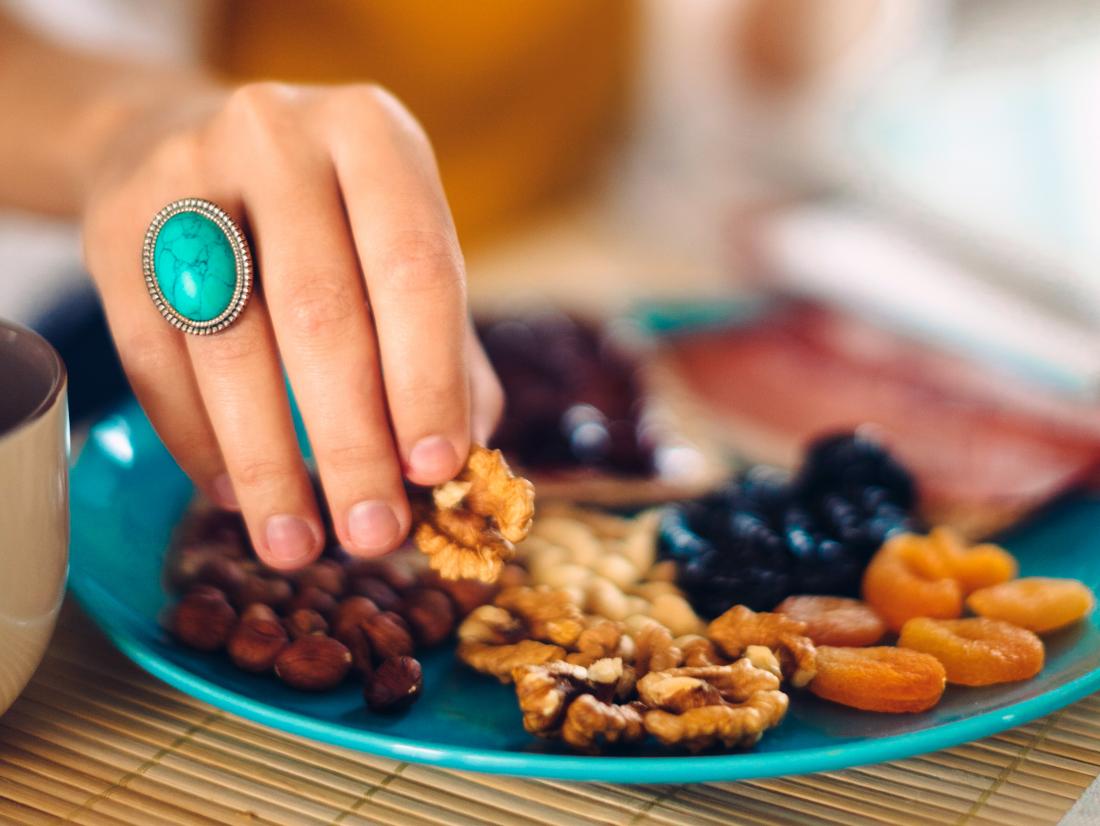Pregnancy acne is a common condition. Hormonal changes during pregnancy can cause skin breakouts. By knowing how to treat acne lesions, a person can often prevent scarring and minimize their emotional distress.
Acne is one of the most common skin changes that occur during pregnancy, according to the American College of Obstetricians and Gynecologists (ACOG).
Although over-the-counter (OTC) and prescription acne remedies exist, women may have concerns about the possible risks of using these products during pregnancy.
In this article, we explain how to treat acne during pregnancy. We also discuss what pregnancy acne looks like, whether it can be a sign of pregnancy, and whether it can happen after pregnancy.

Hormonal changes during pregnancy can lead to acne. The hormones primarily
According to a
Androgens stimulate oil production by
Acne treatments focus on controlling sebum production and clearing clogged pores. Women can treat pregnancy acne with medication or natural remedies.
Medication
Numerous acne products contain salicylic acid and benzoyl peroxide.
Salicylic acid is a type of beta hydroxy acid that helps reduce acne by dissolving dead skin that clogs pores. Benzoyl peroxide works by killing bacteria that cause acne and clearing pores of excess oil and dead skin cells.
Pregnant women can safely use products that contain either salicylic acid or benzoyl peroxide. However, these ingredients can cause skin reactions, including:
- dryness
- peeling
- irritation
According to ACOG, the following prescription acne medications can increase the risk of congenital disabilities and pregnancy complications:
- hormonal therapy
- isotretinoin
- oral tetracyclines
- topical retinoids
Women should avoid using these medications while pregnant. A doctor can offer further advice on acne medications that are safe to use at this time.
Home remedies
Women can also try some natural treatments for pregnancy acne.
Zinc

Zinc is an essential mineral that supports protein synthesis and cell division. According to the National Institutes of Health (NIH), women who are pregnant or lactating have a higher risk of developing zinc deficiency.
The NIH recommend a daily intake of 11–13 milligrams (mg) of zinc for women who are pregnant or lactating.
The health risks of zinc deficiency include:
In a
According to the findings of a 2019 study, a topical acne treatment combining erythromycin and zinc acetate is more effective than a gel containing just erythromycin.
People can use acne treatments that contain zinc or eat foods rich in zinc, such as:
- oysters
- meat, including beef, pork, and poultry
- shellfish
- beans
- nuts and seeds
- yogurt
Vitamin A
Vitamin A is an umbrella term for a family of chemicals called retinoids. Retinoids support a range of vital bodily functions, including:
- immune function
- vision
- reproduction
- communication between cells
Topical retinoids can reduce acne symptoms and prevent the formation of additional acne lesions. They remain the
However, women should speak with a doctor before using these treatments during pregnancy because certain retinoid medications may cause congenital disabilities, according to the
People can get vitamin A from a variety of food sources, including:
Learn more about foods rich in vitamin A here.
Honey
Certain compounds in honey have
People can use honey as a spot treatment by applying it directly to acne lesions. Alternatively, they can make a face mask by mixing honey with a few drops of either lavender oil or lemon juice.
Acne causes different types of skin lesion. These include:
- Comedones are lesions that develop when sebum becomes clogged inside hair follicles. Comedones can be open (blackhead) or closed (whitehead).
- Papules refer to raised areas of skin tissue that can vary in shape, color, and size.
- Pustules are pus-filled bumps that develop when the walls of skin pores break down. They can have a red or pink base with a yellow or white head on top.
- Nodules develop when a skin lesion gets irritated and grows larger. Nodules can burrow deeper underneath the skin than papules or pustules. These lesions usually require medical treatment, such as an oral medication that contains vitamin A.
- Cysts refer to clogged pores that contain a combination of bacteria, sebum, and dead skin cells. Cysts can develop deep within the skin. Doctors can usually treat cysts with prescription medication, but large cysts may require surgical removal.
Although many women develop acne during pregnancy, its appearance does not necessarily indicate that a woman is pregnant.
Acne can develop as a result of fluctuating hormones. People may experience new breakouts during their periods. Medical conditions that affect hormone levels, such as PCOS and hyperthyroidism, may also contribute to acne.
Although many women experience skin changes during pregnancy, acne does not generally develop until the later phases of pregnancy.
According to the findings of a small 2016 study involving 35 women in Taiwan, the severity of pregnancy acne typically peaks during the second trimester.
Women can develop acne before, during, and after pregnancy. Hormonal changes that occur after giving birth can trigger acne breakouts.
In some women, postpartum acne clears up on its own, but others may require treatment. The duration and severity of postpartum acne vary among individuals.
The treatments for postpartum acne are the same as those for acne during pregnancy. Women may still wish to avoid using prescription-strength ointments and pills while breastfeeding.
Oral contraceptives regulate the hormones, which may help control acne. A doctor can offer advice on starting an oral contraceptive after pregnancy.
It is common to experience skin changes while pregnant. Some women may have more severe breakouts, while others might notice their acne clearing up.
Women can safely use most OTC topical acne treatments for pregnancy acne. However, they should avoid retinoids and oral acne treatments while pregnant or breastfeeding.
Eating foods rich in vitamin A and zinc may help reduce acne symptoms. Women can also use honey as a natural acne treatment.
A doctor can recommend treatments for persistent or severe pregnancy acne.
